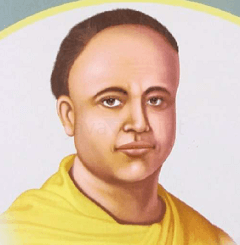Ishwar Chandra Vidyasagar
IntroductionIshwar Chandra Vidyasagar was a principal figure in the 19th century, recognized for his assistance as a philosopher, educationist, social reformer, author, translator, printer, publisher, entrepreneur and philanthropist. He advocated for females' education and played a significant part in establishing girls' schools in Calcutta and other locations. Vidyasagar also worked towards improving the condition of widows in Hindu society by promoting widow remarriage and opposing child marriage. His efforts led to the passing of the Widow Remarriage Act in 1856. He is remembered for making the Bengali language simpler and modern. He also simplified the Bengali alphabet and established schools to teach it. He promoted the Sanskrit language and introduced Western thought in Sanskrit College. In a 2004 poll, he was voted as the 'best Bengali ever'. Ishwar Chandra Vidyasagar BiographyIshwar Chandra Vidyasagar was born into a poor Brahmin family in Bengal. Despite his difficult circumstances, he excelled academically and achieved top positions in exams. He worked as a Chief Pandit and later became the headmaster of Sanskrit College. After resigning from various positions due to differences, he focused on literature and social service. In 1880, he received the honour of C.I.E. Ishwar transformed the economic crisis, becoming generous and helping those in need. He supported women's education, established schools, and implemented reforms in the education system. Despite opposition, he advocated for widow remarriage and expanded access to education beyond certain groups at Sanskrit College. Vidyasagar was a renowned Bengali writer who composed 52 books, including 'Vital Panchabinsati', 'Shakuntala', and 'Sita Vanvas'. He lived modestly but dedicated his later years to helping Santal tribals in Bihar (now Jharkhand) through his establishment called 'Nandan Kanan'. His contributions to education, literature, and society were recognized by renaming the Karmatand railway station as 'Vidyasagar Railway Station'. Rabindranath Tagore praised Vidyasagar after he died in 1891, and his residence was later sold to the Malik family. However, it was bought by the Bengali Sangh of Bihar and turned into a girls' school named after Vidyasagar. The original form of his residence has been preserved, including a valuable item called the 'Palki'. Vidyasagar is known as a reformer who fought for widow remarriage and women's education, establishing numerous schools in the process. Ishwar Chandra Vidyasagar CareerIshwar Chandra Vidyasagar had a significant impact on education in India during the 19th century. He made changes to the Sanskrit College, including introducing English and Bengali as mediums of learning, allowing non-Brahmin students to enrol, and adding courses on European History and Science. He also advocated for women's education and opened numerous schools for girls throughout Bengal. Vidyasagar wrote articles for newspapers and periodicals, published important books, and established the Sanskrit Press to make books more accessible to the general public. Vidyasagar fought against the oppression of Hindu widows in society. He faced opposition but successfully argued for widow remarriage, leading to the passing of the Hindu Widows' Remarriage Act in 1856. He also arranged marriages for child and adolescent widows, setting an example by marrying his son to an adolescent widow in 1870. Ishwar Chandra Vidyasagar was a man of strong character who made significant contributions to society. He fearlessly stood up against discrimination and successfully introduced the Widow Remarriage Act. Despite his stubbornness, he also showed great empathy and helped those in need, including paying for poor students' expenses and supporting Michael Madhusudan Dutt's career. Vidyasagar's altruism gained him the nickname "Daya Sagar" (ocean of generosity). He died in 1891 at the age of 70, departing behind a heritage that impressed even Rabindranath Tagore. Ishwar Chandra Vidyasagar - Social Reforms
Ishwar Chandra Vidyasagar - Educational Reforms
ConclusionIn conclusion, Ishwar Chandra Vidyasagar, an Indian educator, was instrumental in advancing women's education by establishing schools and colleges for girls. His efforts provided opportunities for higher learning and intellectual growth. Vidyasagar was not just an educator but also a social reformer who fought against child marriage and polygamy. Vidyasagar functioned to end dangerous practices and enhance the lives of females in India. He also thought about providing education for all, regardless of gender or colonial status, and supported vernacular languages in academies. F.A.Q.s1. What is Ishwar Chandra Vidyasagar famous for?Ishwar Chandra Vidyasagar had a significant influence on Indian society. He supported widow remarriage and fought against child marriage. Besides, he authored textbooks on philosophy, sociology, and publications. Notably, he summarised the Bhagavad Gita in Bengali. 2. What is Ishwar Chandra Vidyasagar's cause of death?Vidyasagar died in July 1891 at the age of 70 due to poor health. Rabindranath Tagore expressed astonishment at how a man like Vidyasagar could be created by God while producing forty million Bengalis. 3. What are Interesting facts about Vidyasagar?He established a teachers' training school to ensure consistent teaching standards and methods. He also supported women's education. His exceptional performance in college earned him the title 'Vidyasagar'. 4. How did Ishwar Chandra Vidyasagar bring changes to society?Ishwar Chandra Vidyasagar made significant contributions to social reform in India through his advocacy for widow remarriage and girls' education. His arguments led to the enactment of the Hindu Widow Remarriage Act of 1856.
Next TopicJadav Payeng
|
 For Videos Join Our Youtube Channel: Join Now
For Videos Join Our Youtube Channel: Join Now
Feedback
- Send your Feedback to [email protected]
Help Others, Please Share









